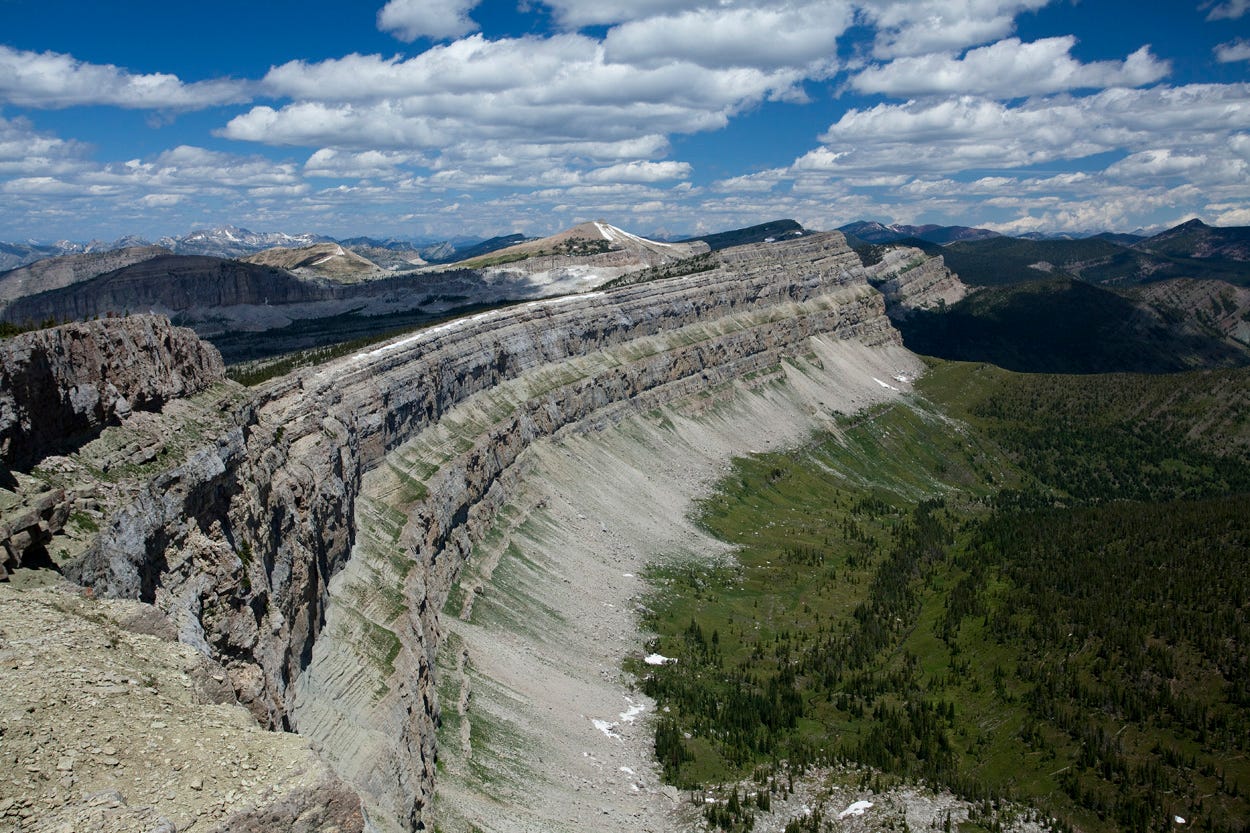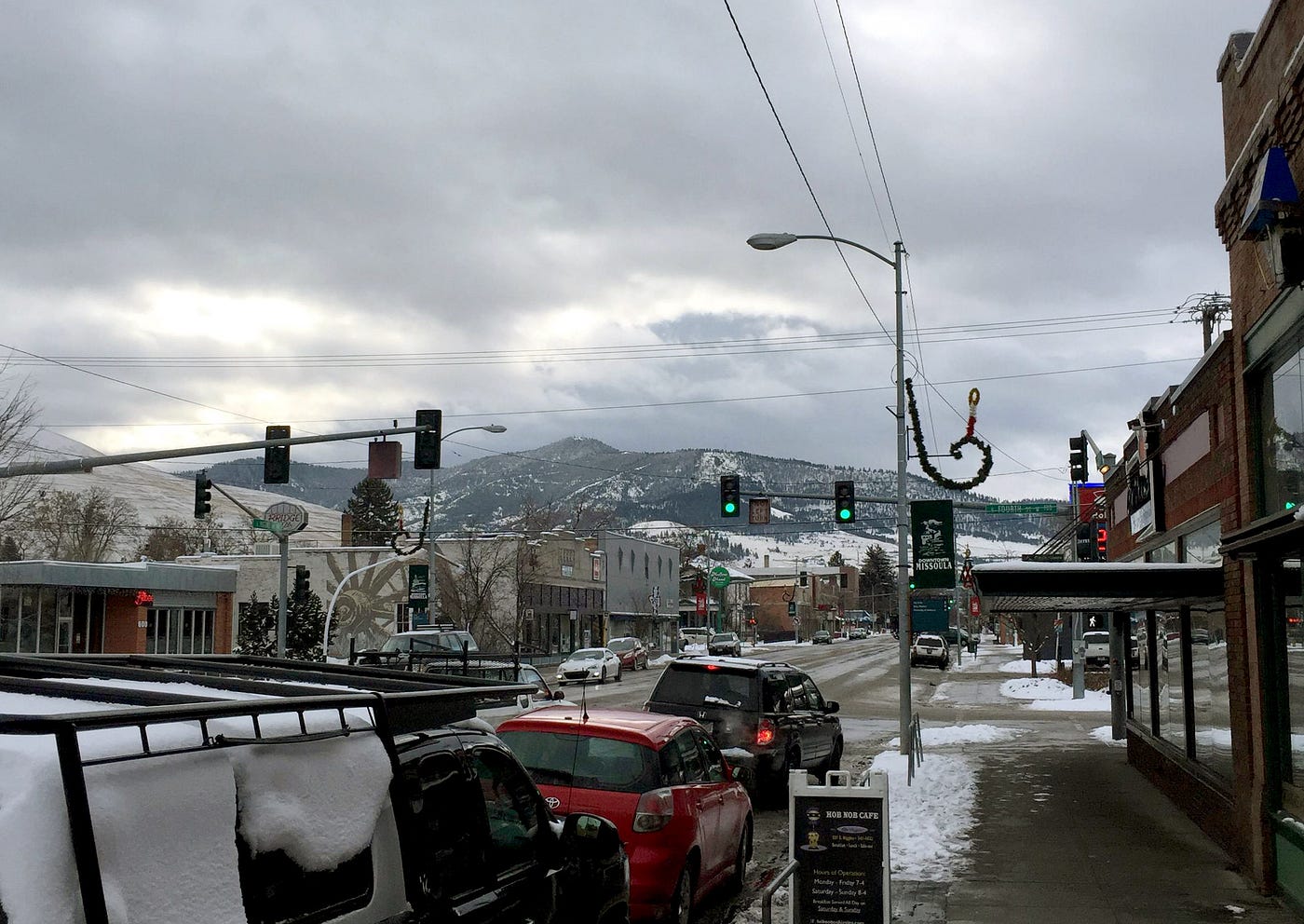Eric Schluessel — Assistant Professor of Chinese History and Politics at the University of Montana, and former Fairbank Center Graduate Student Associate— describes his experience moving from Ph.D. life at Harvard to an Assistant Professorship in Western Montana. What tips does he have for current Ph.D. students on the job market?

“Vast and empty space and high mountains may isolate a population, but they open the minds of a people. The minds of Montana dwell not only upon community and State, but upon the nation and the world and on the essential unity of all.” — Ambassador Mike Mansfield
The landscape of Missoula, Montana inspires contemplation of the Way. In the morning, mists drift in luminous curls around Sentinel Mountain.
The mountain stands guard over the University of Montana (UM). I joined the UM faculty in August as an Assistant Professor of History and Politics shortly after graduating from Harvard with a Ph.D. in History and East Asian Languages. This winter, the Fairbank Center asked me to check in: what happens to Graduate Associates once they’ve flown from the nest?

Moving from Boston to a small town in the Rockies has brought some surprises. The first was UM’s commitment to teaching and scholarship on East Asia. UM is the center for East Asian teaching and research in the Northern Rockies, thanks in no small part to the legacy of Ambassador Mike Mansfield, who first taught Far Eastern History here in 1934.
Endowed by Congress in honor of Senator and later Ambassador Mansfield, the Mansfield Center is home to our small but growing program in East Asian Studies, which I now direct. Center Director Abe Kim (Harvard RSEA ’95) and I are working to strengthen our East Asia programming by seeking funding for scholarly activities, student study abroad, and upper-division electives in Chinese language.

Of course, I also have to thank my outstanding colleagues in Japanese and Chinese, and our partners down the road at Montana State University who are working hard to promote East Asian Studies. Faculty from both our universities have begun to meet periodically for scholarly workshops. Because this is Montana, the next one will be at a hot spring.
Career tip to current grad students: get some experience doing administrative work and learning how to apply for grants! You’ll get to hold workshops in interesting places.
Students at UM have delighted me with their curiosity and willingness to learn, and I would rank their abilities with those of students at any large, well-regarded university. Yet their questions reflect a different set of priorities and interests than one might encounter in an East Coast classroom: I have been asked about Mongol slaughtering practices, forest management in Korea, and of course the technique for shooting an arrow from horseback. Montana would appear to be fertile ground for the New Qing History.

This spring, I am teaching two upper-division courses on China: a survey of modern Chinese history and politics, and a reading seminar covering three millennia of Chinese social and political thought. Both are surprisingly well enrolled, with over twenty bright, talkative people in either one. It will be difficult to keep up with them.

Several of these students are new enrollees in the East Asian Studies major, which has seen a surge of interest. It makes sense that China would be big in Montana — a few years ago, the Confucius Institute based here began teaching Mandarin all over the state. The challenge now is building on this momentum by building a China program that satisfies Montanans’ needs and promoting it strategically.
While Montanans do possess a peculiar breadth of vision, there are challenges to teaching about East Asia in a poor and very rural state. Take study abroad, for example: it is difficult for a student from a town of 300, who works forty hours a week just to pay the bills, to imagine leaving for China for a year. Personally, I am proud to work at a public institution, and I believe that higher education serves an important role in facilitating social mobility. So how do we make China accessible to our students?

One solution is mentorship. One of the best things about UM, and especially the East Asia program, is that we offer small classes with extensive student-professor interaction, much like a small liberal arts college. This means that the East Asia program can monitor and anticipate student needs, and that faculty can be a resource for students working on funding applications. We try to make every student aware of their options and show them a clear path forward, and we hope to provide some of our own support in the near future.
All of this work means that the days are long, but satisfying. It is good to be productive. On the walk home in the evening, the towering peaks around our valley remind me of the ancientness of the world, and its endurance. The mists gather and dissipate. I hope my students will wind up where they need to be.
Eric Schluessel graduated from Harvard University in 2016 with a Ph.D. in History and East Asian Languages, and is a former Graduate Student Associate at the Fairbank Center. He is currently Assistant Professor of Chinese History and Politics at the University of Montana, Missoula.


